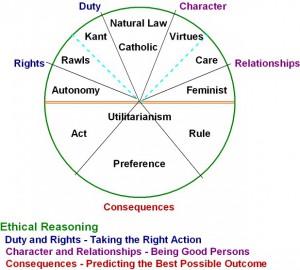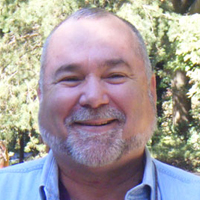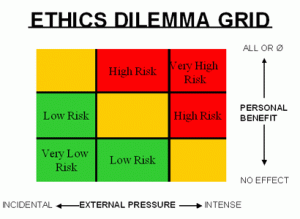
Graphic: Ethics Dilemma Grid
Balance, Citizen-Centered, Leadership-Integrity, Strategy-Holistic Coherence, True CostSearch: osint spectrum
SearchesChuck Spinney: What To Do About Jobs in the USA?
Culture, Economics/True Cost, Politics
My friend Jeff Madrick lays out the outlines of the central economic crisis of our times: the hemorrhaging of high paying middle class jobs — a subject I addressed wrt to the loss of manufacturing jobs here.
Chuck Spinney
Jeff Madrick, New York Review of Books, 2 Oct 12
With domestic policy as the theme of Wednesday’s presidential debate, the Obama campaign is facing a weakening economy. The Commerce Department just reported that GDP grew at an annual rate of only 1.3 percent in the second quarter. Job growth has been tepid, with continued high unemployment and underemployment. When one counts all those looking for full-time jobs and unable to get them, the true unemployment rate is close to 17 percent. Meanwhile, the US faces looming threats of a new European recession and a slowdown in China and other parts of the developing world.
But the starkest evidence that something is seriously amiss in the American economy is the dramatic deterioration of the middle class. Median household income—the midpoint income of all American households—was reported by the Census Bureau (whose data is a year or so behind) to be down in 2011 compared to 2010, despite an economic recovery that began in mid-2009. More disturbing, that figure is now down to around $50,000, which is 7 percent or so below what it was in 2000 and its lowest level since 1996, adjusted for inflation. Incomes are falling still more sharply for black households.
Continue reading “Chuck Spinney: What To Do About Jobs in the USA?”
Berto Jongman: Global Factors that Influence Conflict and Fragility
Knowledge, Policies, ThreatsGlobal Factors that influence Conflict and Fragility (OECD, Sep 2012)
The risk of conflict and fragility is influenced by both domestic factors (such as political marginalization and the unequal distribution of wealth) and global factors (such as the transnational organized crime and foreign direct investment). Much analysis to date has analyzed the political economy of fragile and conflict affected countries and neglected this global dimension of fragility.
Yet, powerful global influences are at play that, enhanced by the process of globalization, generate strong international constraints and opportunities for national development and the incentives of domestic stakeholders. Fragile states feature a heightened sensitivity and lower resilience to such influences because of their generally weak levels of institutional capacity, the often contested legitimacy of their political settlement, their high levels of inequality and the legacy or threat of violence they face. For the same reasons, they also easily mutate, multiply or transmit such influences, often in unexpected or negative ways. In short, such global factors have a critical influence on conflict and fragility but are underestimated in both the analysis and action.
INCAF’s work on this topic focuses on eight global factors that influence conflict and fragility, and in particular on interconnections between these factors. The aim of this work is to identify concrete entry points for international action that can reduce or mitigate the harmful effects of such global factors.
A Cross-Impact Matrix of Global Factors Influencing Conflict and Fragility, 2012 (pdf)
Robert Steele: Introducing Dr. Greg Newby, Director of the University of Alaska Supercomputing Center, and Co-Founder of the Multinational Open Source Arctic Innovation Consortium (MOSAIC)
Advanced Cyber/IO, Communities of Practice, Earth Intelligence, Ethics, Officers Call, Policies, Serious Games, Threats
Today I had the pleasure of sitting down for a second time with Dr. Greg Newby, director of one of America's top supercomputing centers, this one in Alaska and operated by the University of Alaska. He has some ideas about Arctic information collection, prcoessing, analysis, and SHARING that are breath-taking; I attribute this in part to his also being the current lead for the Gutenberg Project, whose founder died recently. If there is one person on the planet that understands supercomputing, open everything, and the potential of the cloud to radcially empower all members of any M4IS2 endeavor, that person is Dr. Greg Newby. He is in Washington until Friday morning when I drive him to the airport, and can be reached via email at <gbnewby@alaska.edu>. Tomorrow he meets with the US State Department representative to the Arctic Council. At this time he has no meetings scheduled with US Navy or US Coast Guard points of contact for Arctic matters and would welcome being contacted directly.

Click on Image to Enlarge
I confess to being delighted by how he has adapted my eight-tribes concept and also with his diligence in pursuing a global initiative to make all data available via a MOSAIC real-world “game” to be created by Medard Gabel, co-creator with Buckminster Fuller of the analog World Game, and architect of both the existing UN Earth Dashboard, and the conceptualized digital EarthGame that needs only a staff of six and an annual budget of $3 million to be created.
Mini-Me: A Post-Israel Middle East Report — Covert Action, Solid Thinking, or Both?
IO Deeds of War
Huh?
28 Aug 2012 US Preparing for a Post-Israel Middle East?
Phi Beta Iota: The alleged National Intelligence Estimate (NIE) probably does not exist. This appears at first glance to be a really excellent covert operation aimed to slamming the Israeli's back before the election–we must remember that similar briefings have been given about Saudi Arabia. Above is the “source” document for those that follow, and it includes 13 excellent points but does not address Israeli attacks against US military personnel (USS Liberty certain, USS Cole probable), nor does it address the core issue in the Middle East, water, where Israel is the top predator with its underground cross-border water theft. The alleged report also exaggerates US public hostility to US engagement in the Middle East. On balance, the US public is either pro-Israel or totally tuned out.


